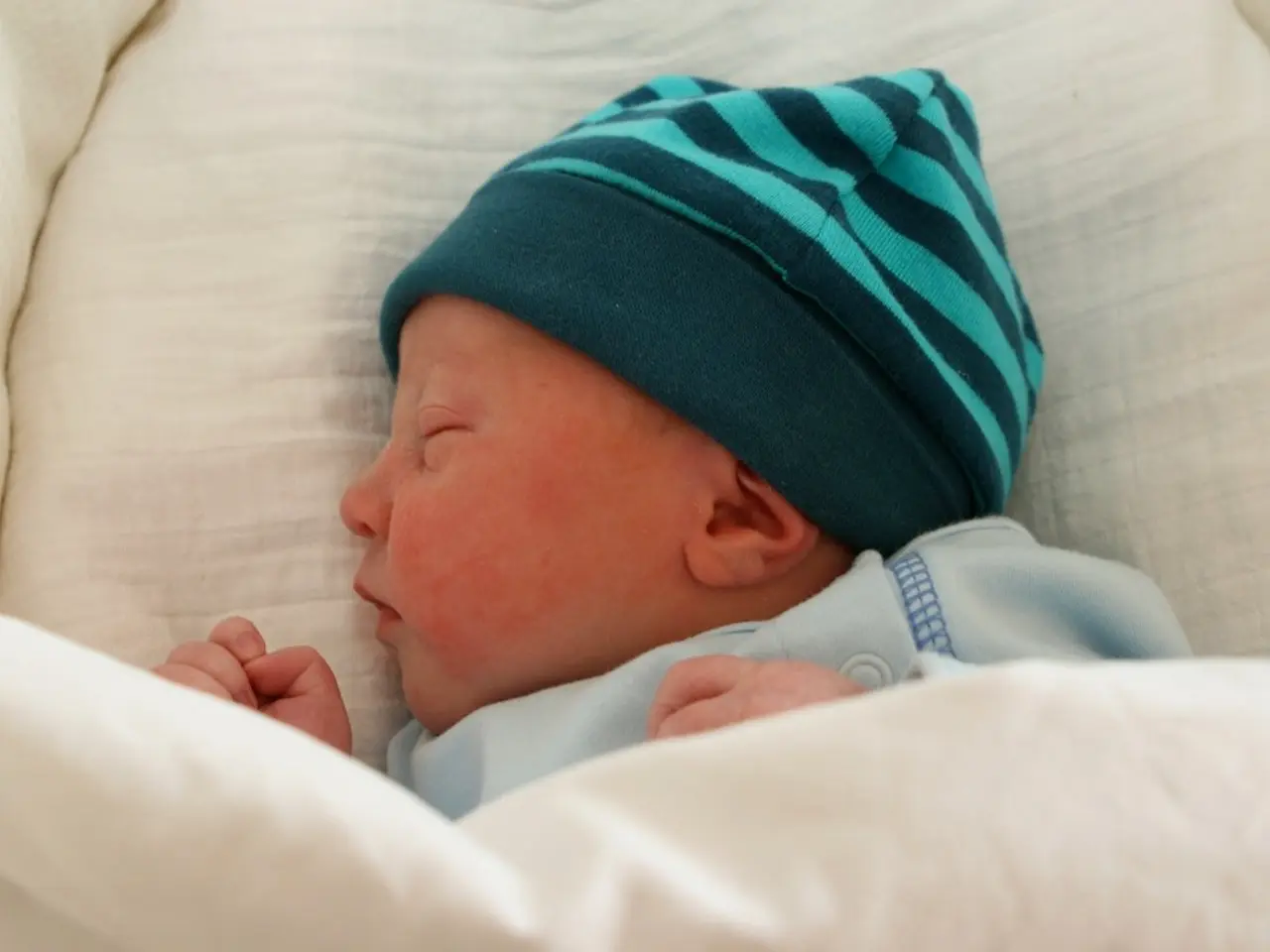Optimal Sleep Conditions for Infants from a Nigerian Perspective
In Nigeria, the art of childcare is deeply rooted in warmth, closeness, and attachment, fostering a strong bond between caregivers and babies. This cultural emphasis extends to sleep routines, where co-sleeping is prevalent and traditions emphasize communal involvement, with extended family members contributing to nurturing the child.
However, ensuring a baby's optimal sleep environment goes beyond cultural practices. It requires a blend of scientifically supported methods and respect for cultural values.
A safe sleeping space is universally recommended. Babies should sleep on their back in their own bassinet or crib, with a firm mattress, and free from loose blankets or toys to avoid suffocation risks. Opting for breathable bedding materials like cotton, bamboo, or merino wool can prevent overheating, a known risk factor for infant sleep disruptions and Sudden Infant Death Syndrome (SIDS).
Swaddling, a common practice in Nigeria, helps suppress the startle reflex, allowing babies to sleep more soundly. Swaddles should be snug but breathable and made from natural fibers.
A dark room promotes melatonin release, which regulates sleep-wake cycles and helps babies settle and sleep longer. White noise, mimicking the womb environment, signals sleep time to babies and helps them transition smoothly between sleep cycles. Incorporating familiar sounds or gentle rhythms common in Nigerian culture as white noise could enhance comfort and bonding.
Maintaining a recommended temperature range for a baby's room and using a thermometer and humidifier can help regulate the temperature and humidity levels, ensuring a comfortable sleep environment. Establishing a consistent sleep schedule also regulates a baby's internal clock and ensures adequate rest.
Sleep is essential for a baby's growth, development, and overall well-being. Quality sleep aids memory consolidation, emotional regulation, and immune system functioning in infants. It also fosters brain development and enhances learning abilities.
In summary, an ideal Nigerian baby sleep environment blends a safe, separate sleep space with breathable natural bedding, comfortable swaddling to reduce startle reflex, dark, quiet (white noise) surroundings to promote melatonin and healthy sleep cycles, and cultural sensitivity to familial bonding and traditional caregiving practices to support emotional security and wellbeing. Such an approach supports both the scientific understanding of infant sleep and the cultural context for Nigerian families, optimizing sleep outcomes and family harmony.
References:
[1] American Academy of Pediatrics. (2016). Safe sleep recommendations for infants. Pediatrics, 138(3), e20162938.
[2] National Sleep Foundation. (2017). The importance of sleep for infants and toddlers.
[3] National Sleep Foundation. (2018). Sleep tips for infants and toddlers.
[4] Adewuya, O., & Olatunji, O. (2018). Indigenous perspectives on childbirth and childcare practices among the Yoruba of Southwestern Nigeria. Journal of Midwifery & Women's Health, 63(5), 545-551.
- In Nigeria, a cultural emphasis on closeness and attachment between caregivers and babies extends to sleep routines, including co-sleeping and communal involvement from extended family members.
- However, optimizing a baby's sleep environment necessitates a blend of scientifically supported methods and respect for cultural values, such as a safe sleeping space without loose blankets or toys.
- A safe, separate sleep space for a baby should consist of a firm mattress, a bassinet or crib, and breathable bedding materials like cotton, bamboo, or merino wool to prevent overheating and SIDS risks.
- Swaddling, a common practice in Nigeria, can help calm babies and promote sounder sleep by suppressing the startle reflex, but swaddles should be snug yet breathable and made from natural fibers.
- A dark room aids melatonin release, which regulates sleep-wake cycles in babies, while white noise, mimicking the womb environment, can signal sleep time and help them transition smoothly between sleep cycles.
- Establishing a consistent sleep schedule, maintaining a recommended temperature range for a baby's room, and using a thermometer and humidifier can ensure a comfortable sleep environment and regulate a baby's internal clock for adequate rest.
- High-quality sleep is crucial for a baby's growth, development, and overall well-being, as it aids memory consolidation, emotional regulation, immune system functioning, brain development, and enhances learning abilities.
- To optimize sleep outcomes and family harmony, an ideal Nigerian baby sleep environment combines scientifically supported methods with cultural sensitivity, ensuring a safe, separate sleep space, breathable natural bedding, comfortable swaddling, dark, quiet surroundings for healthy sleep cycles, and respect for traditional caregiving practices to support emotional security and well-being.




